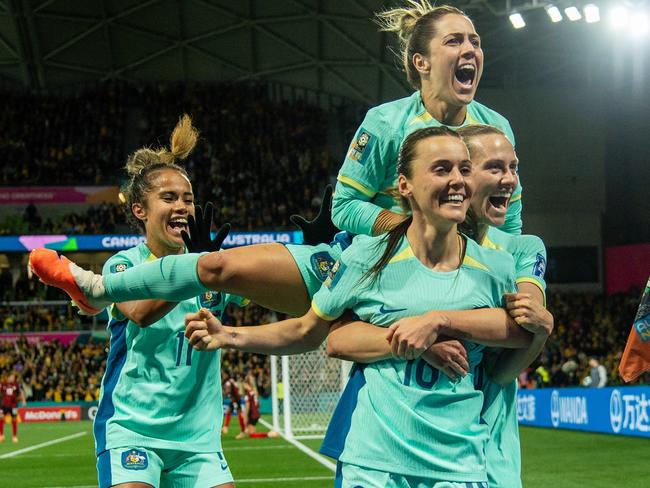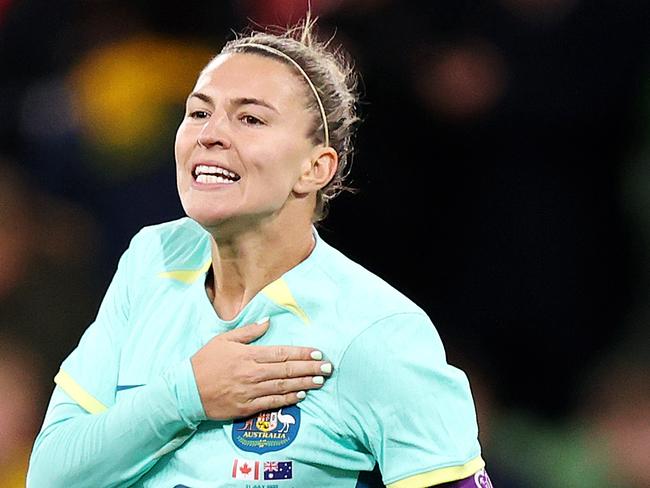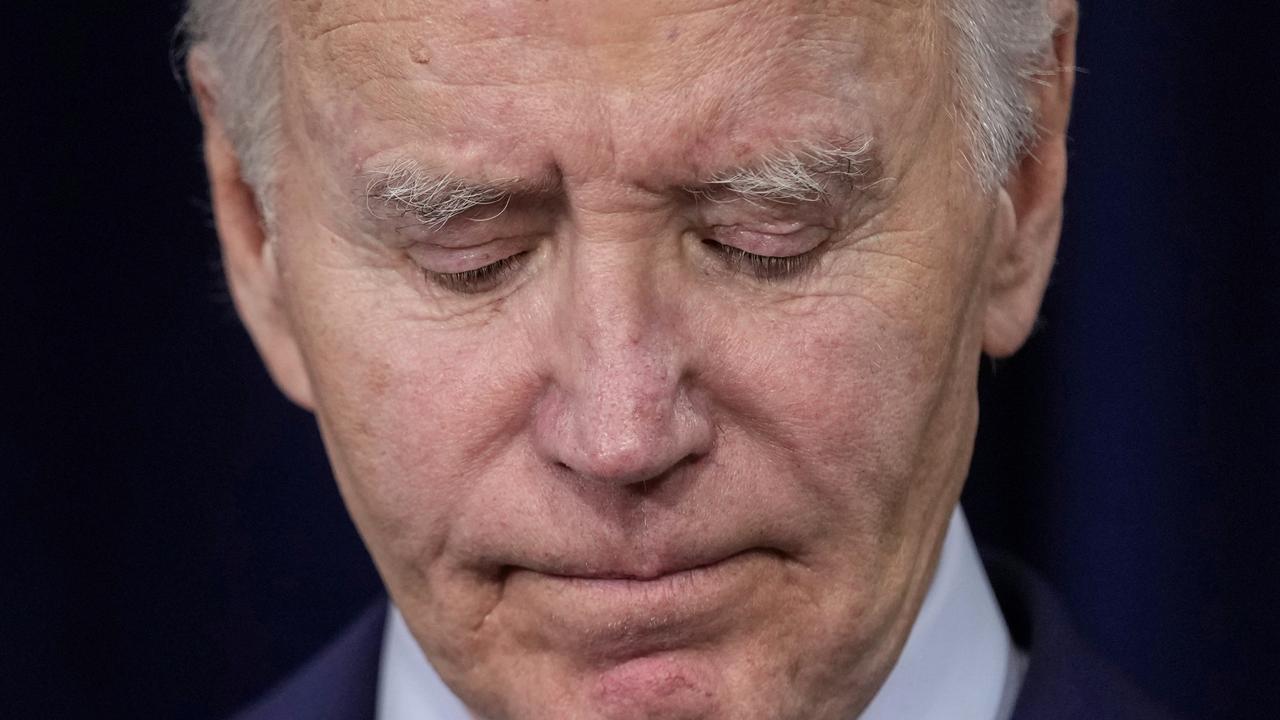Angela Mollard: The Matildas have inspired a generation of girls to follow their dreams
For our daughters the magic of watching the Matildas play goes beyond the goals and the wins. Instead, a new generation is sparking with energy, imagination and dreams, writes Angela Mollard.
Opinion
Don't miss out on the headlines from Opinion. Followed categories will be added to My News.
A decade ago my daughter came home from school one day hopping mad. She was in Year 6 and had been chosen for the girls’ soccer team but the school only had enough uniforms for the boys.
While they went to matches in their two-tone blue shirts, proudly embossed with the name of the school, my daughter and her mates had to bring a blue T-shirt from home.
“It’s so sexist,” she grumbled.
I didn’t like to tell her that nearly a century earlier when the Queensland Ladies’ Soccer Association began in 1921 that the female players kicking off the nation’s first competition were likely equally dispirited by what they were given to wear. Jerseys were paired with bloomers which featured straps over the shoulders to hold them up, and with no footy boots available for women, it was agreed boys’ sizes would be adequate.
Nothing speaks to progress more than the Matildas right now and when they run out onto the field – back in their traditional green and gold – they represent so much more than women’s sport finally coming into its own.

Of course, the sponsors are delighted and the Seven Network is thrilled with the ratings and Nike must be cracking into the champagne since the women’s team have sold more jerseys than the Socceroos managed in the 2022 World Cup.
But just as thrilling as Hayley Raso’s goals and Steph Catley’s sprints down the left side are the moments the cameras pan to the audience.
Kids, way up past their bedtime, are punching the air and turning their painted faces to each other as they revel in the spectacle.
The magic goes beyond the goals and the wins. For under the bright lights a new generation is sparking with energy, imagination and dreams.
Most will never be professional athletes but on that pitch and in those players these kids – so many of them girls – are being granted something they won’t find on TikTok or Snapchat.
They’re seeing that if you immerse yourself, if you burrow down deep into something and give it your very best, you’ll find a fulfilment that’s unattainable almost anywhere else.
It doesn’t have to be soccer or netball or swimming.

It could be singing or pottery or scouts or helping out with a charity. But in that commitment, in that willingness to first try and then learn and ultimately persevere, there’s a self-determination that will serve them for the rest of their lives.
I’m always surprised that parents focus on the outcomes when they stand on the sidelines cheering their kids on.
The triumph is that their child is there, participating, forming connections with team or task, and picking up skills that will protect them forever more.
As this generation battles mental health issues more than any before, they’ve learned to express what they feel.
They have a language to make sense of the muddle in their minds and that’s a great thing. But in the clamour to diagnose, talk and treat I wonder whether they spend enough time out of their minds and in their bodies.
Whether a tackle on the footy pitch or the synchronised pull in a rowing shell or inhabiting a character on stage soothes and reminds them that there’s a world outside their hurting brains.

The peak age for girls dropping out of sport is 15.
They say they feel insecure about their bodies or need to study and 62 per cent said they didn’t have a female sports star to look up to.
The research by Visa and Year 13 in May also reported that two-thirds said their families rarely or never watched women’s sport.
The issue is not just that they’re less active – they’re more inward-looking, whiling away their lives on TikTok rather than participating.
When your days are spent in observation rather than doing, you miss out on the curiosity and absorption that comes with new interests.
What’s captivating about the Matildas and the other teams in the FIFA World Cup is that they show girls they can be more than one thing.
Katrina Gorry proves you can be a mother and a top-level footballer while Jamaica’s Khadija “Bunny” Shaw shows you can push through adversity.
Having lost three brothers to gang violence and a fourth in a car accident, she is thrilled to be a role model in her homeland.
“It’s a great feeling when they use me as an example,” she has said.
“You know, I had one pair of shorts and one pair of shoes. I used my school shoes to play football.”
And while her high-glam on-pitch look has prompted controversy, Switzerland’s Alisha Lehmann has shown you can love sport and wearing makeup.
In one post to her staggering 14.3 million Instagram followers, she writes: “Favourite things to do …” followed by a football and lipstick emoji.
We can tell girls they can do anything but sometimes it’s simpler just to show them.
As the inscription inside every Matildas soccer jersey reads: “For All”.




